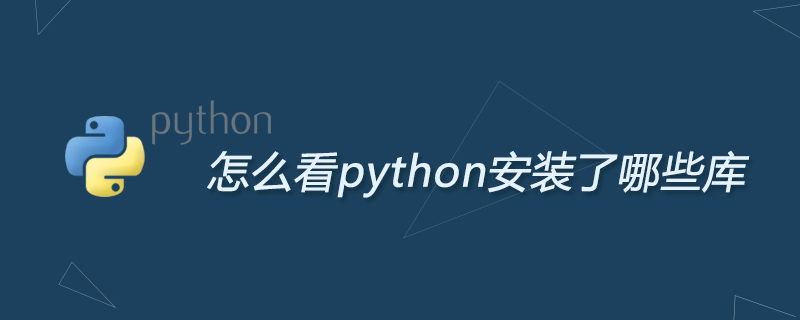
As I use python for longer and longer, I install more and more python modules. After a long time, I don’t remember what I have done to my computer before, so I want to check it out. The python module installed by yourself, the viewing method is summarized as follows

1. Use the pydoc command on the command line(recommended learning:Python video tutorial)
Run $ pydoc modules under the command line to view
2. Use help() in the python interactive interpreter to view
Enter >>> help("modules") in the interactive interpreter. The effect is the same as entering $ pydoc modules on the command line.
3. Import the sys module to view under the python interactive interpreter
Python's sys module can also be used to view module information
>>> import sys >>> sys.modules.keys()
4. Use it from the command line pip view
If you are using pip as your python package manager, you can directly run $ pip freeze or $ pip list on the command line to view the installation package information. Of course, other The package manager also has similar functions. At the same time, you can also import the pip module in the python interactive interpreter to view package information
pip list#或pip freeze
5. Use yolk to view
If you have installed yolk, you can use the yolk command to view the package information. You can use $ pip install yolk to install it
Yolk is easy to use, just operate it from the command line
$ yolk -l #列出所有安装模块 $ yolk -a #列出激活的模块 $ yolk -n #列出非激活模块 $ yolk -U [packagename] # 通过查询pypi来查看(该)模块是否有新版本
For more Python-related technical articles, please visit the Python Tutorial column to learn!
The above is the detailed content of How to see which libraries are installed in python. For more information, please follow other related articles on the PHP Chinese website!